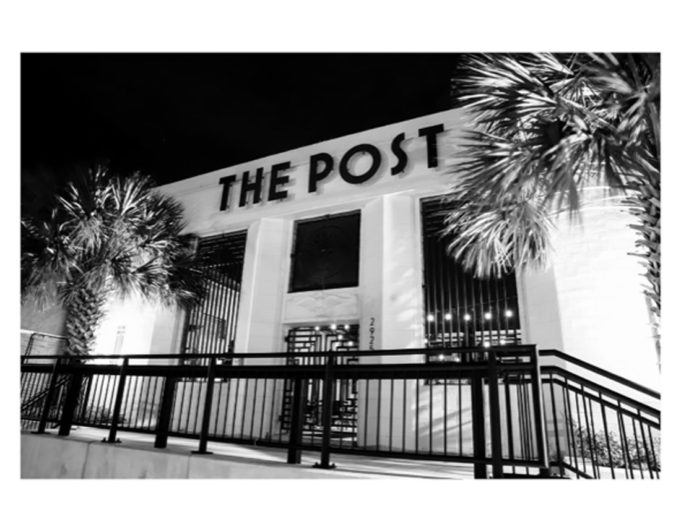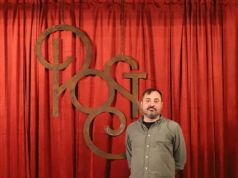In a recent Fort Worth Report story entitled “Live music isn’t dying, music venue owners say,” Texas Music Office director Brendan Anthony said that “three closures announced within one week is likely a coincidence rather than an omen for venues in Fort Worth.”
Fort Worth booking agent Brooks Kendall added, “These are businesses that come and go a lot anyways. It just, I think, came across to people who are invested in the local scene as particularly alarming that three [closed] in one week.”
As head of Afallon Productions, Kendall booked shows mainly at The Post at River East, the venerable Race Street concert hall and restaurant known for presenting a lot of Americana, country, and other singer-songwriter-oriented bills to packed houses of people excited to sit down at a table, eat a really good sandwich, and catch performances by nationally known artists like Rhett Miller, Dale Watson, Jason Boland, and BettySoo, as well as locals like Jacob Furr, Cameron Smith, and Jackie Darlene. To look at the Post’s upcoming calendar, the Report’s headline seemed to poke major holes in the “death of Fort Worth music” narrative.
Five days later, Kendall posted the following on The Post’s social media accounts: “The Post will be closing permanently on February 29. We have reached the end of our lease and have decided not to renew. We are actively looking for a new location to reopen in. It has been a wonderful five years on Race Street, and we are so happy to have been able to do it. We thank everyone who has been a part of this experience.”
How can a music scene be just fine when yet another venue has shut down? I recently asked Kendall if his opinions in the Report piece had changed. He said that he stands by what he said, pointing out that had the pandemic never happened, “we’d be having different conversations about those venues, because most if not all of them would still be open. …. Each of those places have their own reasons for closing. … I don’t think that it’s fair to say that if someone makes that decision [to close their venue], that it’s specific to Fort Worth or its interest in live music. I don’t know what other owners’ calculus is … but we’ve all faced different challenges coming out of the pandemic. We all had a massive financial hole to climb out. But as for the health of the scene? There’s nothing in my personal experience [of late] to suggest that it’s because people don’t have interest in live music anymore.”
We both agreed that the perception of a dying scene often comes from the perspective of people our age — we’re both in our mid 40s — who were heavily engaged in the local scene nine, 15, maybe even 20 years ago (I in Fort Worth, he in Denton).
“I think that the local music scene is cliquey,” he said, “and a lot of the time, what makes it work is when there is a tightknit community, and that happens in generational waves, and a lot of the people I hear that [dying-scene narrative] from are kind of too old to be in a music scene in that way, too. The people telling me [the music scene is dying] are often people who wouldn’t go to these places anyway, who don’t even have bands anymore — old music-scene people that still have ownership in some way but aren’t actively participating in it like they used to.”
Yet Kendall’s shows at the Post (and before that, at the long-gone Live Oak when Afallon owned that business) are kind of for old music-scene people.
“I make my living presenting live music to people in my age group,” he said with a chuckle. “Whatever the next generation is, maybe they are into stuff that isn’t even for me. I know young promoters who are doing stuff for young people, and that’s not a scene I’m part of. Honestly, I’d believe it if someone said [the new band scene] is not as good as it was way back then, and I’d believe it if someone told me the scene was better than ever.”
As an example, he mentioned Daniel Alvarez, a Post employee who books metal, noise, and punk shows under his promotion company NoiseROT. Alvarez, Kendall said, “puts on shows at the Post, Haltom Theater … a lot of these found spaces that some guy will let him rent out and fill with kids. DIY shows, basically. And they do well. From observing what [Alvarez] does, there is definitely a young rock music scene in Fort Worth.”
And also, in my own experience, if you start with a local heavy band search on Instagram — OZONE or Frozen Soul, for example — you’ll likely fall into a scroll-hole full of pictures of crowded shows at local spots you might not even recognize. Most of those bands never played Lola’s or Twilite in the first place, yet here they are, still scorching the ears of tons of young people.
The Post remains open for another month, with a show nearly every night in February. Afallon, for its part, is considering all available options for its venue, and Kendall isn’t really worried that Fort Worth will lose the soundtrack to its cultural identity just because some of its venues are no longer around.
“I don’t really feel the pessimistic outlook I’ve been hearing from a lot of people,” he said. “I think a lot of us old timers need to adjust our attitude and yield to a younger generation. It’s not about teaching them about how we did it 20 years ago. They can figure out their own way of building a music community, just like we [old people] did way back when.”












